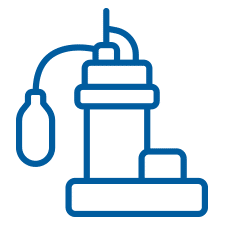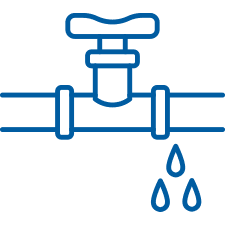At the beginning of every year, we like to hang up a brand new, empty calendar and start filling in those important dates to remember for the upcoming year. We always start with the fun and exciting dates, like anniversaries, birthdays and vacations. However, we also have to remember our yearly appointments to go to the dentist, get the furnace and air conditioning looked at, the fluids in our cars changed, and even your annual physical with your doctor.
While you are writing down all of the necessary things to be checked annually, do not forget about an important part of your home, your basement. A dry, healthy basement is a very valuable asset and is even more vital when you’re basement is finished. The small cost of maintaining your downstairs is nothing compared to the hassle and heartache of cleaning up after it has been flooded with a couple inches of water from a heavy rainstorm.
What happens if you lose power during a bad storm and you haven’t recently had your battery backup system checked? What if your window wells are filling up with water and leaking into your basement simply because your well drains were clogged with leaves and debris? You can avoid the grief of removing water-damaged drywall and carpeting, ruined photo albums and other important family heirlooms by having your basement inspected every year.
There are many things you can do to help keep your basement dry, but some things are better left to a professional. Perma-Seal can provide you with our 10 Point Annual Inspection Program that will help to assure you that your lower living space can stay dry for good.
- Remove, clean and water-test the storm water sump pump.
- Clean the storm water sump pit of debris.
- Flush and water-test the discharge lines and fittings.
- Replace the battery on the High Water Alarm.
- Inspect the battery and mechanical operation of the backup pump system.
- Test the ejector pump.
- Look for any possible yard drainage and downspout extension problems.
- Inspect the window wells and drains for any clogs or leaks.
- Examination of the foundation walls for signs of seepage or structural damage.
- A written report of any findings and solutions to that problem.







